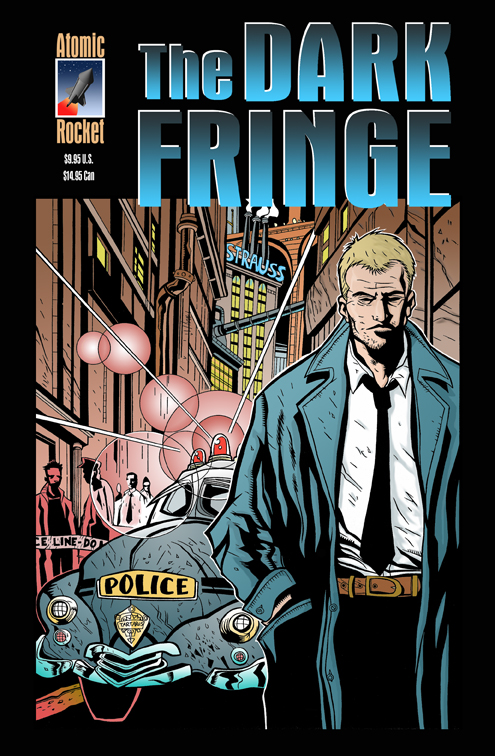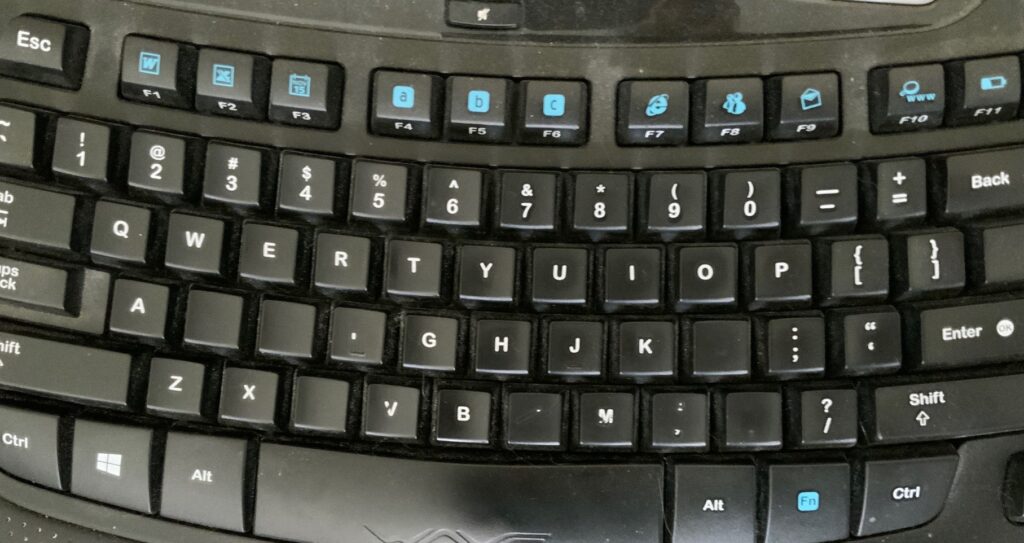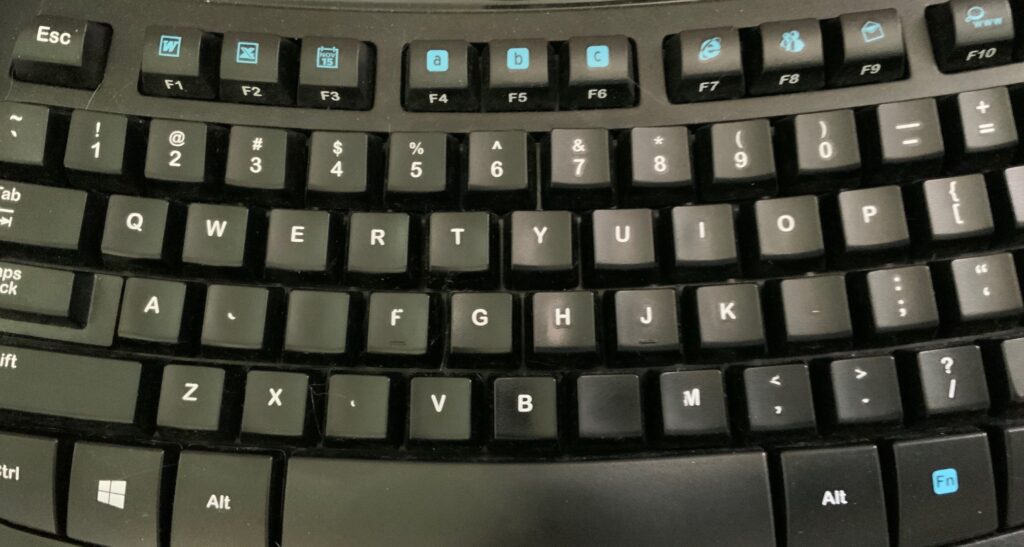I’ve always been fascinated by how authors write.
I’ve bought books by some noted authors who go into explanations of their writing techniques and I’ve found that, for the most part, there are similarities and differences but one thing is clear: They put in the work.
As much as writing is presented -especially in the media- as some kind of diversion, writing is hard work, at least for me, which involves considerable concentration and thought along with many, many hours of sitting either behind a desk or on a chair going over page upon page of material.
I’ve said this before but it bears repeating: When I set about writing a novel, it becomes something of an obsession. In quiet times, when driving or when eating or showering or you-name-it, my mind tends to wander upon whatever story I’m currently writing and thinking through scenarios and bits and pieces of the book and, at times, coming up with new/interesting material to add to the whole thing.
It’s almost like going into an OCD trance that can quite literally last for many months and, in extreme cases, a year or more!
But let’s take a step back and please note, this is my way of doing things and may not apply to other authors.
How do I begin the whole process?
This is the hardest part of the whole thing: Coming up with a concept you feel is worth pursuing.
It’s so easy to say so very hard to put into practice. At any given time I may think -when I’m not concentrating on whatever novel I’m currently writing- scenarios and possibilities for future stories.
Sometimes, I back into works I’ve considered before and/or not quite completed and revisit them to see if they’re worth giving a second look. Other times I’ll simply come up with an interesting new concept -one I very much like- and work from there.
There are no hard and fast rules about this, other than that the initial idea, however it came about, is one that I feel is worth pursuing.
In the novel I’m currently writing, I did a little of both. The story begins with a short story I wrote quite literally many, many years ago and always felt like it would make a great intro to a cool longer story/novel.
Only problem was at the time I wrote that original story, I simply had no place to go with it.
I subsequently got involved in my Corrosive Knights series and, following finishing that off and looking around for a follow up, I then recalled that original short story I wanted to expand upon all those years before and, like magic, the gears in my head start turning and soon I had an interesting initial concept which used the short story as the novel’s intro and went off from there.
But, just because I had an initial concept doesn’t mean the whole story, start to end, is all planned out and ready.
I started the process of writing this new novel and, as I did, the story morphed from something relatively simple/simplistic into something a little more involved. Often, it moved into directions I couldn’t have anticipated without the hard work of sitting down and typing away and/or thinking about the story day after day.
This is a standard part of my process of writing, by the way. Every novel I’ve written, every one, I start off with an initial set of ideas that appeal to me enough to pursue but over time the story inevitably moves into all kinds of new and interesting -and unanticipated!- directions.
Why?
Maybe because I can’t stand the idea of writing something that isn’t to some degree original/interesting to me as a writer… and I need to surprise myself with these new directions.
See, this is part of what makes for a successful book in my mind: I want to be as surprised and excited by new and interesting ideas as I hope I make readers feel. I don’t want to go through an “easy” route and write something that repeats other stories. I want there to be an unpredictability to the story being told, to offer surprises that make sense yet are just that. In as much as possible, I want to give my readers -as much as I’m able to- something they may not have read before.
That’s not to say I’ll always succeed at doing this, but I try!
If I’m very lucky -or in a good groove- I’ll have the first full draft done in a matter of 2-4 months or so, usually the later and in some cases sometimes longer.
The “completeness” of the first draft of my novel varies wildly but it usually represents a point where I’m comfortable enough with what I’ve written -start to end- that its time to print it out, read through it, and add notes and new material while starting the process of getting rid of any extraneous material.
There have been times I’ve decided to print out a “first draft” with significant chunks of the book missing/not yet written. Sometimes its because I’m unsure what will go into these sections and I want to step back and get a clear look at the book “as is” to figure out what it may need. Once again, creativity is the key as I’m coming up with scenarios and sequences.
Speaking of which, at this stage I sometimes realize sections of the book may need to be re-ordered. An action scene on page, say, 100 works much better if it is placed a little earlier in the book proper.
By the time I finish the first draft read-through, I have a printed copy that’s filled with red marks and notations. Sometimes, I’ll write on separate pages what I need to put in.
I take those revisions -and at this stage they’re pretty significant- and put them into the computer. I then print the whole revised thing out and read through it, once again adding in things that are needed, taking out things that aren’t, while cleaning up whatever I can. The earliest drafts are mostly about getting the novel’s sequences in order and making sure the book works like it should.
When we get around to the third draft, its usually more of the same: Going over the book, trimming whatever fat there is, and adding or subtracting what needs to be added or subtracted. In some instances I may realize that there are two or three separate sequences that work better if they’re merged together into one, or one sequence that works better if its split in two.
It’s like having Lego blocks and swapping out pieces here and there as well as sometimes moving bigger sections to other places.
This will go on with each subsequent draft and soon I’ll have the novel’s story pretty well “locked” down. All the parts will flow, leading to the climax and conclusion and there will be no need to either add or subtract sequences.
When I’ve gotten to that point, my revisions tend to move into the storytelling mechanics themselves. In this part of the process I become interested in streamlining the writing and making sure its as sharp as possible while leaving the story itself.
I’m an impatient reader and this informs my writing. I don’t like novels which waste page after page with what winds up being pointless dialogue or overlong description. While it may work for other authors, for me it becomes an exercise in “trimming the fat”.
While the page/word count tends to rise from the first draft until I have the story “locked down”, the opposite happens when I reach this later stage of writing. As I cut things down, making sure that I’m not repeating myself and offering the reader the essence of the story I’m trying to tell without the bloat, the word count now tends to start falling.
Soon enough I reach a point where my red marker is being used very little from page to page and that’s when I know the book is just about ready to be released.
And that’s when the reward for all that hard work comes.
The moment I finally hold a fresh copy of my latest novel and flip through it.
It’s an absolutely beautiful feeling!
Like this:
Like Loading...





